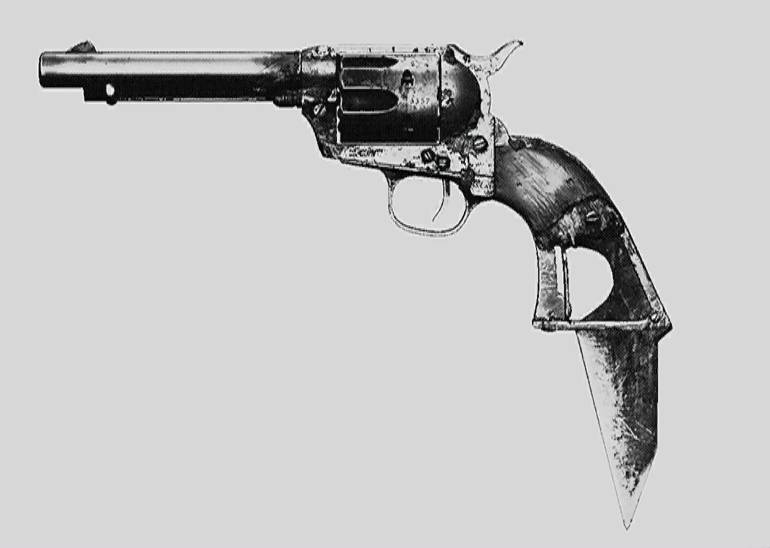Caldwell Pax Claw

CALDWELL PAX CLAW (See also, CALDWELL PAX, FIELD MODIFICATIONS) The Caldwell Pax Claw was never an officially mandated design, and rather the term given to a particularly malicious field modification. The handle is extended with a large knife blade, particularly suited to a stabbing thrust motion. The namesake is purely visual, resembling an animal's claw. This practice emerged and became popular in lawless backwaters, where conflicts are solved brutally at close quarters, somewhat at odds with the name Pax.
The Papers of Hayden Collins
Filed under: Lynch
Story draft?
Undated
The circle was drawn in salt, the symbols that danced around and inside and through it painted in ash. The corpse had been laid across the border of the circle, bait and bridge. She crouched in the shadows, the long rope of flesh in her hands. She lamented the fact that intestines could not be used to bind a demon - it would be so much easier - before she forced her attention back to the circle.
And then it was there, a glimmer like heat in the air, an absence of light, a wisp of smoke, and the faint smell of wet clay. It crawled across the body, its image solidifying with each movement, running a long purple tongue across the exposed muscle. The expression on what she thought of as its face was unreadable, too other for human interpretation, though it was ecstasy and greed she projected upon it.
As the being crossed the line of the salt where it was broken by the body, Lynch jumped into action, pushing the corpse into the circle even as she entered it herself, closing the broken full moon of salt again with a quick motion of her hand. The being, the demon, the creature, the god remained atop the man. She was not worthy of its attention during a meal. The last mistake you will make, she thought, before she sprung and bound it in the ropes made from the same flesh it was currently devouring. So it was sustained. And so it was undone
She would distill its corpse into the serum used by the Association, an inoculation of a sort, though nearly as deadly as the ailment it prevented.
